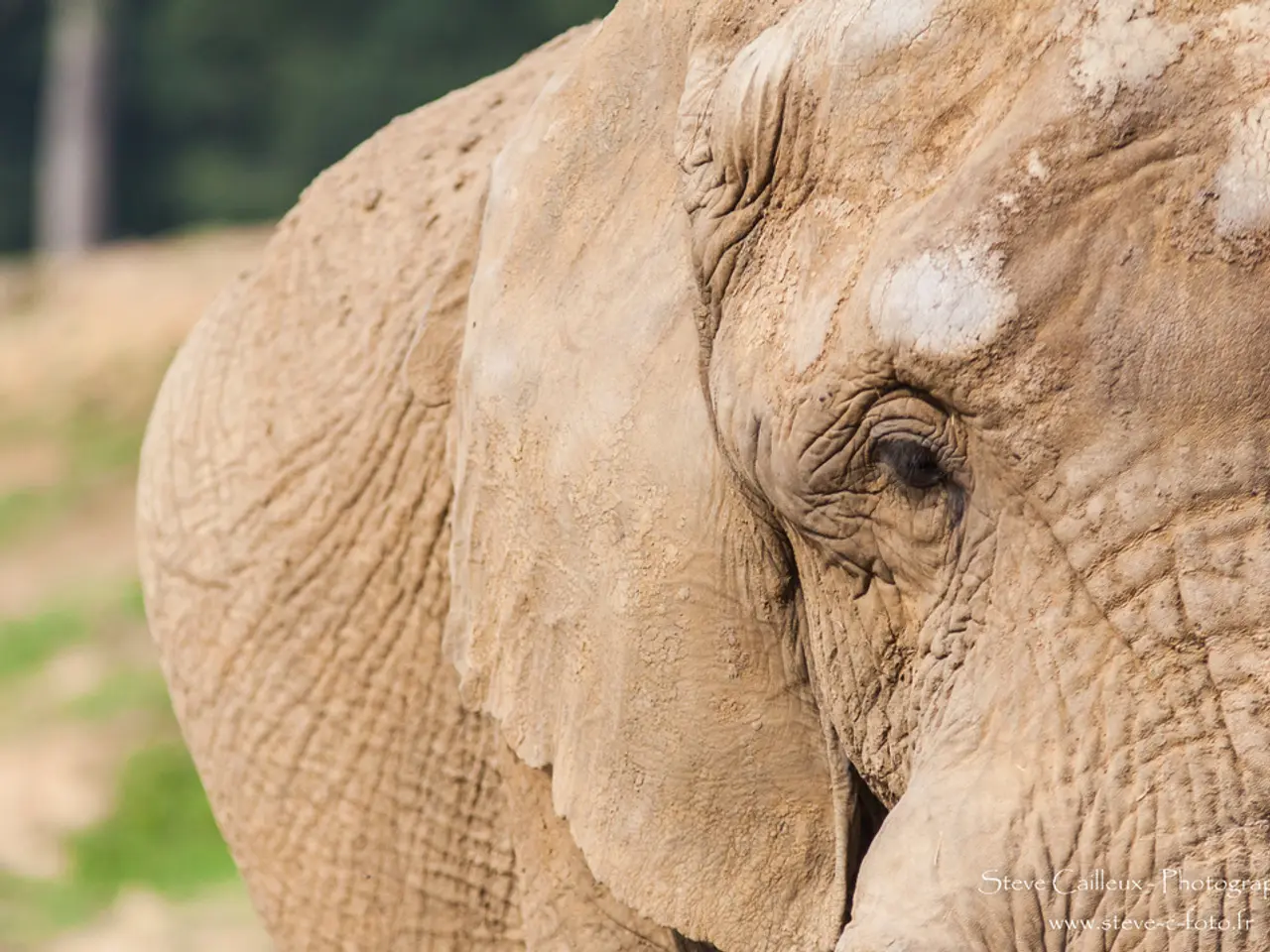Tourists from the United Kingdom and New Zealand fatally trampled by an elephant during a walking safari in Zambia
In a heartbreaking incident, two female tourists, Easton Janet Taylor (68, from the U.K.) and Alison Jean Taylor (67, from New Zealand), lost their lives in South Luangwa National Park, Zambia, on July 4, 2025. The pair was on a walking safari when they were attacked and trampled by a protective female elephant with a calf.
This unfortunate event serves as a grim reminder of the unpredictable nature of wild animal behaviour in wilderness settings. Despite attempts by safari guides to deter the elephant by firing shots, the attack could not be prevented.
Sadly, such incidents are not unheard of in African safari destinations. In South Africa's Kruger National Park, fatal elephant attacks on tourists have been reported, including a 2022 incident where a tourist was killed when an elephant charged a vehicle after being startled. In Kenya, a 2021 case in Maasai Mara involved an American tourist killed by a group of elephants during a walking safari.
Although exact frequencies of elephant attacks on tourists are not comprehensively documented, they are considered uncommon but devastating when they occur. These events have significant impacts on local safari tourism and highlight the challenges of balancing wildlife conservation with visitor safety in African wildlife parks.
The Eastern Province police Commissioner, Robertson Mweemba, expressed his condolences for the loss of the visitors. The incident occurred around 600 kilometres from the capital, Lusaka. Last year, two American tourists were killed in separate encounters with elephants in different parts of Zambia.
Female elephants can respond aggressively to perceived threats, particularly when protecting their calves. In a separate attack in June 2024, another U.S. tourist, Juliana Gle Tourneau (64), was killed by an elephant in the Zambian city of Livingstone. The attack occurred when Tourneau's vehicle was near the Maramba Cultural Bridge due to traffic caused by an elephant herd.
In light of these incidents, Zambian authorities have called on tourists to exercise extreme caution while observing wildlife. They urge visitors to respect the animals' space and to always stay alert during safaris.
It's essential to remember that while encounters with these magnificent creatures are a significant part of the safari experience, they also carry inherent risks. As we mourn the loss of the two tourists, we are reminded of the importance of respecting and understanding the behaviour of these magnificent but unpredictable animals.
**Summary Table:**
| Location | Incident Frequency | Notable Recent Incidents | Contextual Notes | |-----------------------------|------------------------|----------------------------------------------|--------------------------------------------------| | Zambia (South Luangwa) | Rare, some fatal cases | July 2025: Two tourists killed during walking safari | Elephants with calves can be highly protective | | South Africa (Kruger Park) | Rare | 2022: Fatal attack on tourist during game drive | Elephant behaviour unpredictable when startled | | Kenya (Maasai Mara, Amboseli)| Rare | 2021: American tourist killed in walking safari | Walking safaris pose greater proximity risk |
This incident serves as a sombre reminder of the importance of respecting and understanding the behaviour of these magnificent but unpredictable animals. As we continue to enjoy the wonders of Africa's wildlife, let us always remember to do so with caution and respect.
- The urgent need for policy-and-legislation concerning migration to multiple African safari destinations is highlighted, as the number of reported war-and-conflicts and increased crime-and-justice incidents has been rising, along with fatal accidents like car-accidents and fires, potentially affecting travelers' safety.
- News portals and political platforms have been abuzz with general-news stories of tourists falling prey to a series of uncommon but devastating accidents, such as elephant attacks, in African wildlife parks, leading to alarms around the balance between wildlife conservation and visitor safety.
- The aftermath of the tragic incident at the South Luangwa National Park in Zambia, where two tourists were killed in July 2025, has emphasized the significance of implementing comprehensive policy-and-legislation to ensure both wildlife conservation and visitor safety in African wildlife parks.
- As a wave of fatal encounters with elephants continues to surface, including the deaths of two American tourists in Zambia and separate incidents in South Africa's Kruger National Park and Kenya's Maasai Mara, questions arise about the need for implementing stricter guidelines regarding car-accidents, fires, and crime-and-justice in African safari destinations.
- The recent surge in general-news stories regarding deadly accidents in African wildlife parks, such as elephant attacks, car-accidents, fires, and crime-and-justice incidents, calls for a holistic reform in policy-and-legislation that encompasses a proactive approach to safeguarding both wildlife conservation and visitors' safety.






